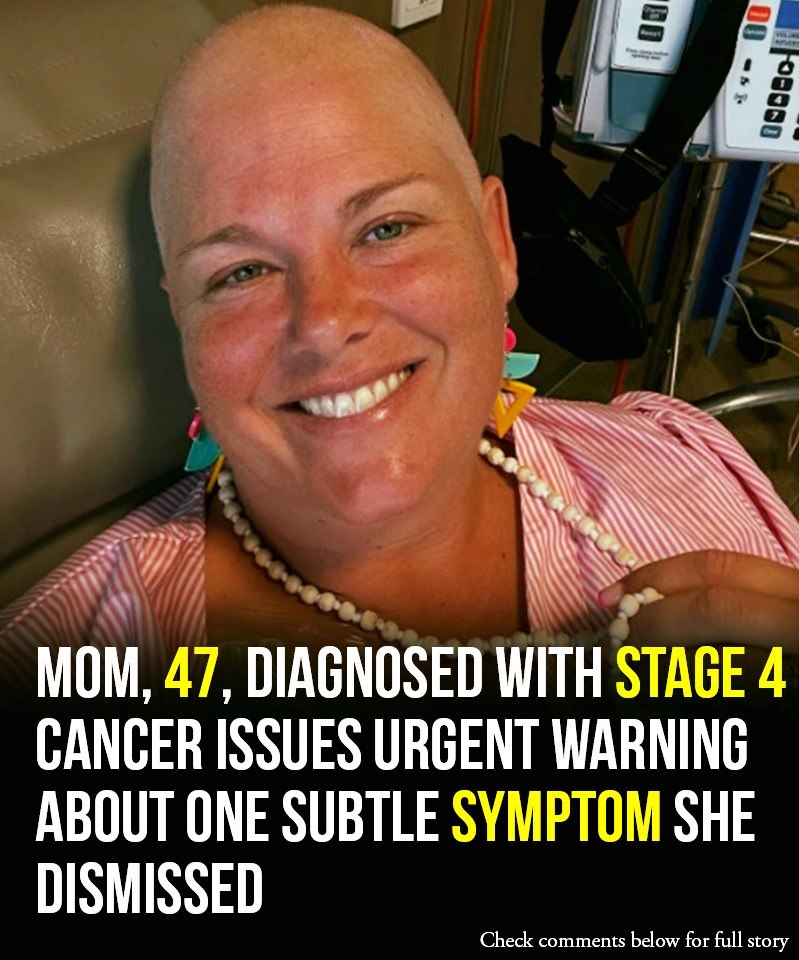Stage 4 Cancer Patient Warns That Subtle Symptoms Can Mask a Deadly Disease
When 47-year-old Susan Schmidt from Brisbane first began experiencing unusual fatigue and mild constipation, she brushed it off as a side effect of her busy life. She never imagined that those small, seemingly harmless signs were actually the first indications of stage four bowel cancer.
Diagnosed in 2023, Susan’s world changed overnight. But rather than retreat into fear, she found new purpose in her fight—to raise awareness about the importance of early detection and to break the silence surrounding bowel health, a topic too often avoided.
Susan recalls her first symptoms as “strange” and “subtle.” The exhaustion, she said, was unlike anything she had felt before. “I’d drive my daughter to rowing practice early in the morning and then have to nap in the car before heading home,” she remembered. “That wasn’t normal. It was my body trying to tell me something, but I ignored it. I thought I was just tired from work and parenting.”
Months later, while vacationing in France, Susan noticed something new—she was constipated for the first time in her life. She assumed it was due to rich food or travel disruptions and carried on. But when she returned home, the discomfort worsened dramatically. “I ended up on the bathroom floor in absolute agony,” she said. “I was vomiting, had diarrhea, and the pain was worse than childbirth. That’s when I knew something was seriously wrong.”
Her initial blood tests and scans showed nothing out of the ordinary, and doctors reassured her that cancer was unlikely. Still, her instincts told her otherwise. When the pain persisted, Susan insisted on further testing. A colonoscopy finally revealed the truth she had feared.
“When I woke up, I could tell by the doctor’s face that something was wrong,” she recalled. “He told me they had found a tumor.”
Subsequent scans showed that the cancer had already spread to her uterus, pelvic lymph nodes, and right lung. The news was devastating, but Susan refused to give in to despair. “I allow myself moments to cry,” she admitted, “but then I remind myself that life is still worth living. I have so much to be grateful for.”
Today, Susan has turned her battle into advocacy. Through her organization, The Floozie Foundation, she supports adult cancer patients and their families throughout Australia. Her mission: to encourage early screening, foster emotional support, and normalize open discussions about bowel health—especially symptoms that people often find embarrassing to talk about.
“Even if your blood work looks fine, even if your doctor says it’s just stress or diet—trust your gut,” she urged. “You know your body better than anyone. If I had waited any longer, I might not be here today.”
Her transparency and courage have already inspired thousands to schedule screenings and to take even minor symptoms seriously.
Susan’s story is one of strength and purpose—a testament to the power of listening to one’s body and refusing to be silenced by fear. Her message resonates far beyond her own diagnosis: early detection saves lives, and ignoring the warning signs can be deadly.
Through her continued advocacy and online outreach, Susan reminds others that even in the darkest times, hope and purpose can emerge. Her voice now serves as both a warning and an inspiration—urging everyone to pay attention, ask questions, and take control of their health before it’s too late.
The story originally appeared on [Link].

